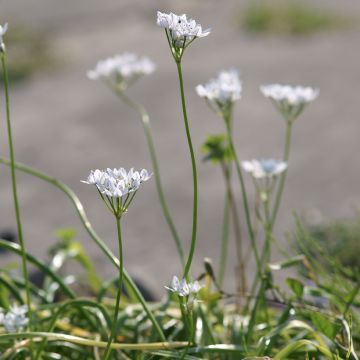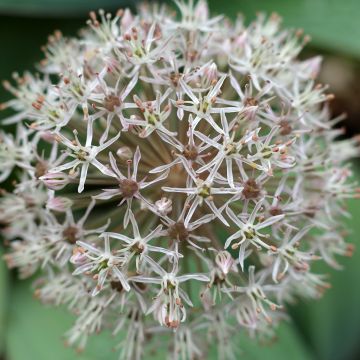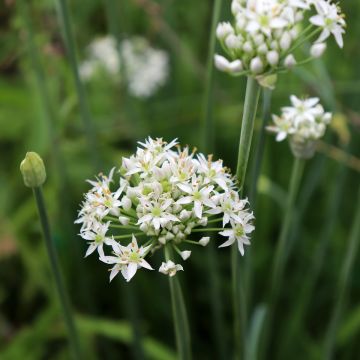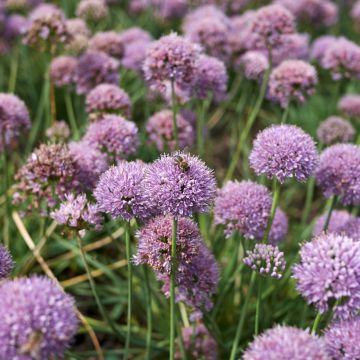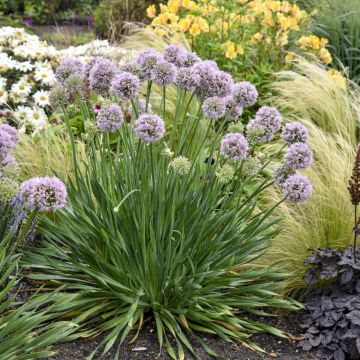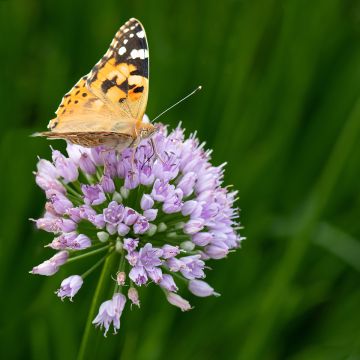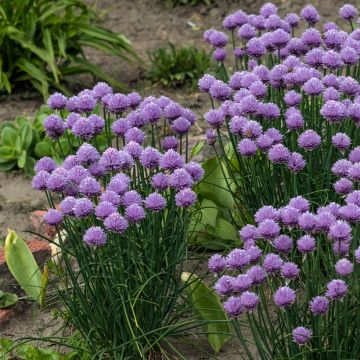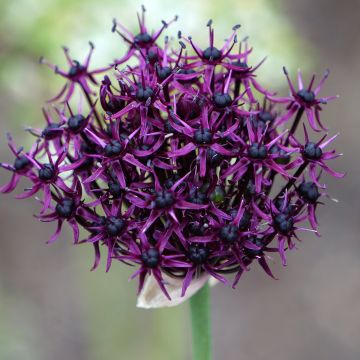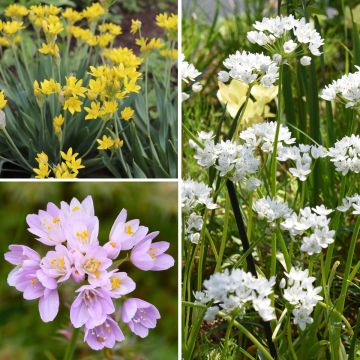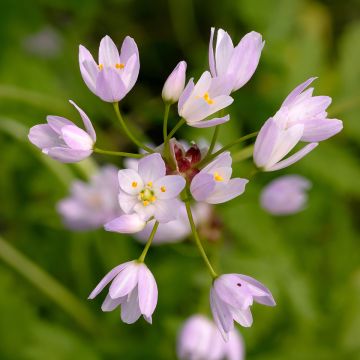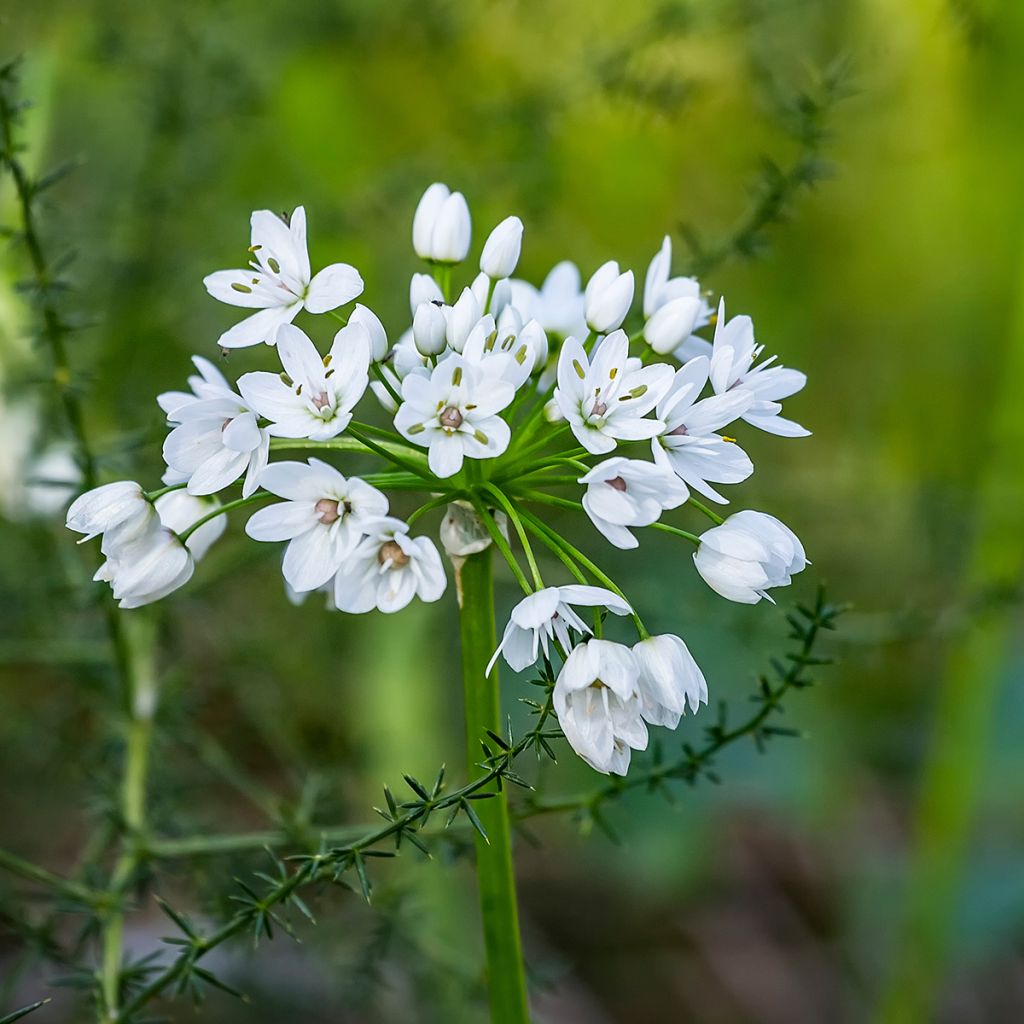

Allium neapolitanum Groupe Cowanii
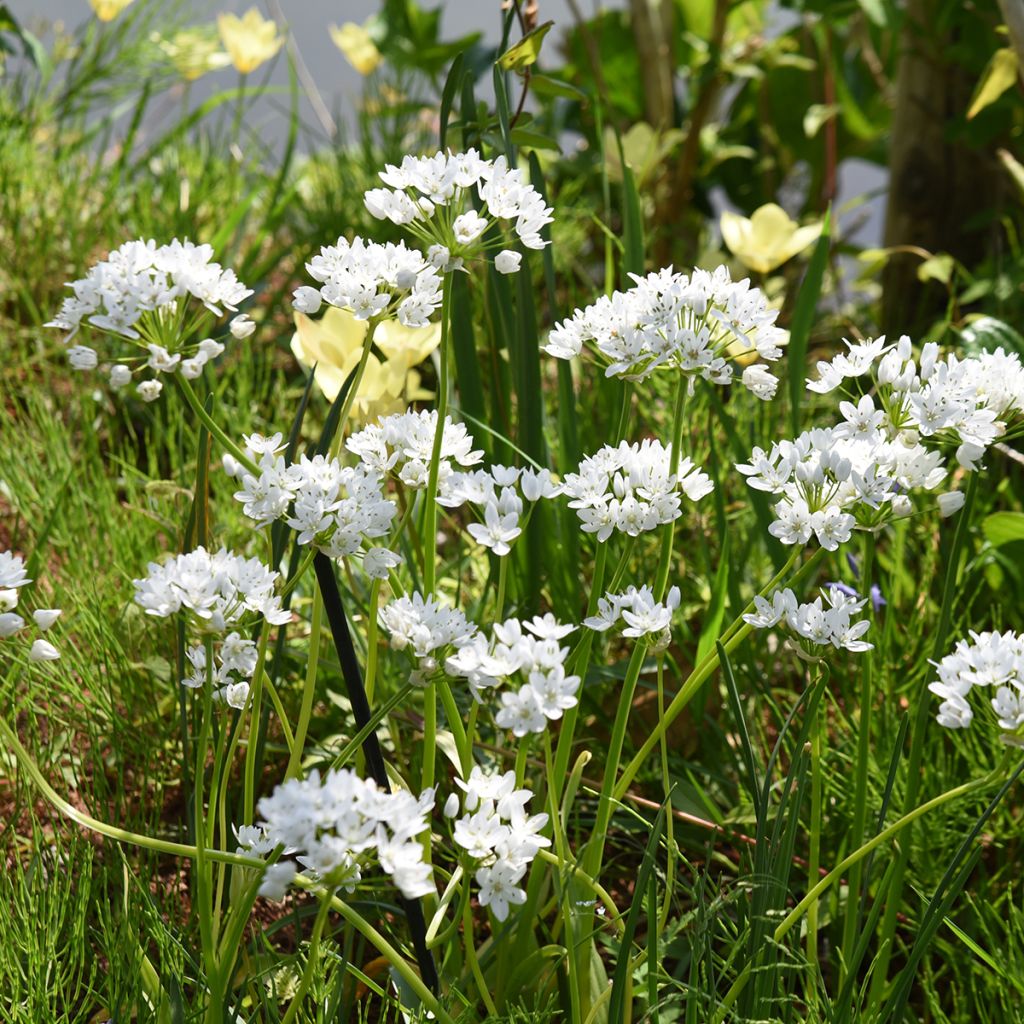

Allium neapolitanum Groupe Cowanii
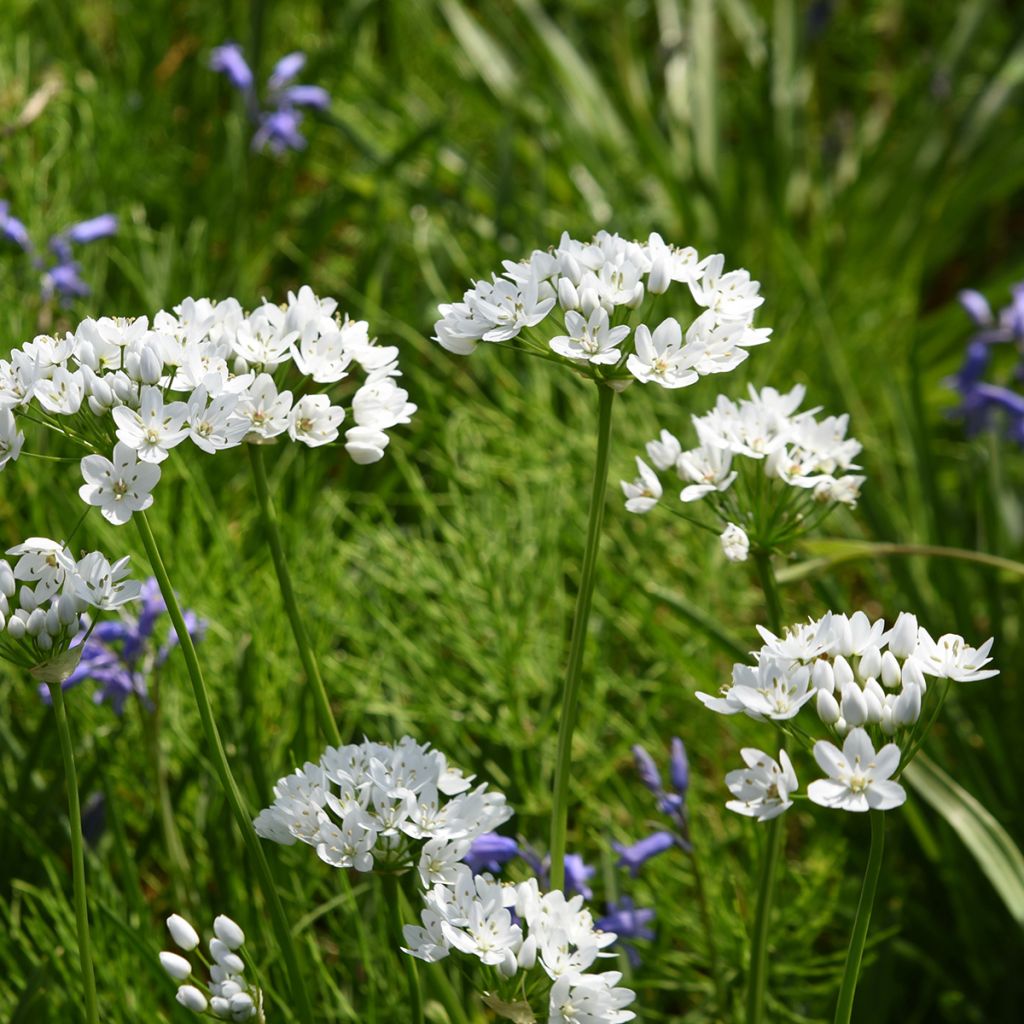

Allium neapolitanum Groupe Cowanii
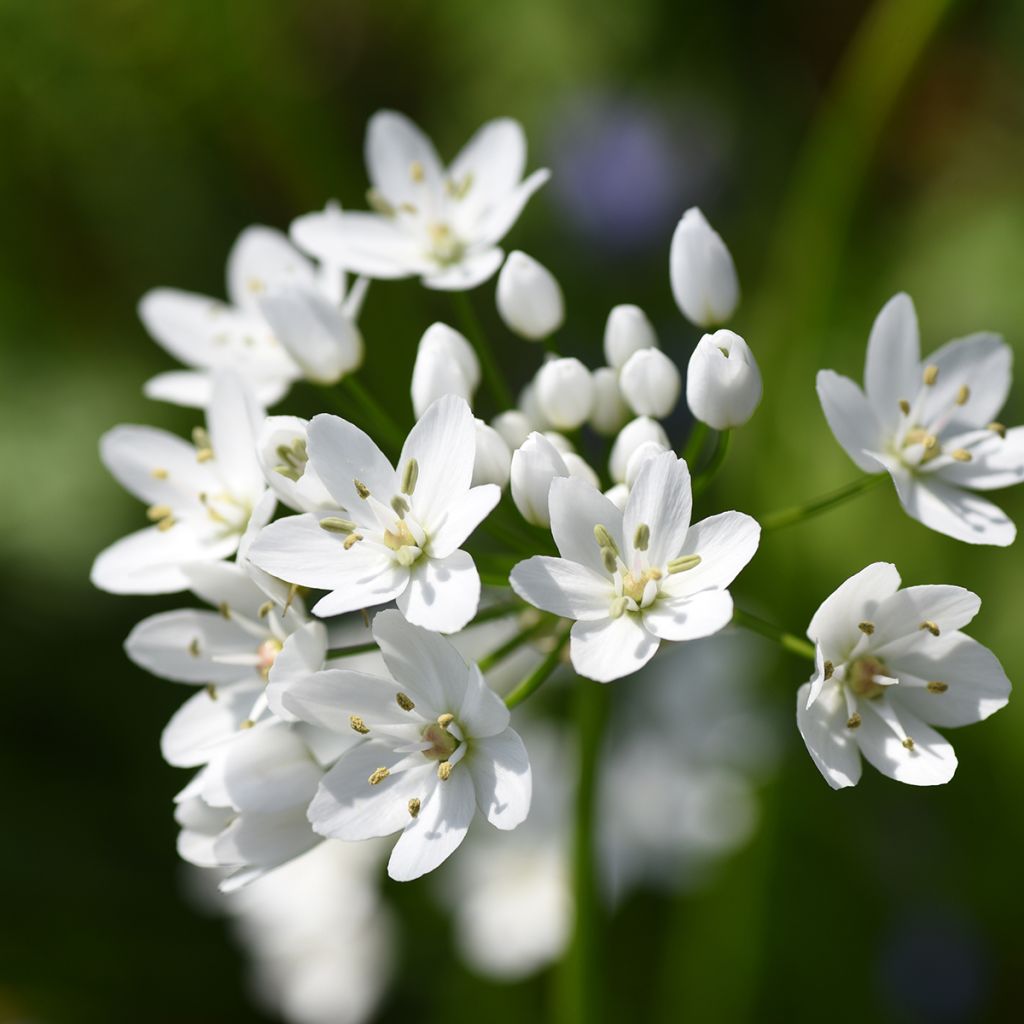

Allium neapolitanum Groupe Cowanii
Allium neapolitanum Groupe Cowanii
Allium neapolitanum Groupe Cowanii
Neapolitan garlic, Naples garlic, Daffodil garlic, False garlic, Flowering onion, White garlic, Ornamental Onion
Why not try an alternative variety in stock?
View all →This plant carries a 6 months recovery warranty
More information
We guarantee the quality of our plants for a full growing cycle, and will replace at our expense any plant that fails to recover under normal climatic and planting conditions.
From €5.90 for pickup delivery and €6.90 for home delivery
Express home delivery from €8.90.
Does this plant fit my garden?
Set up your Plantfit profile →
Description
Allium neapolitanum 'Cowanii' is an ornamental garlic that produces bright white star-shaped umbels of flowers. They gracefully sway at the end of short stems, above attractive linear foliage. This plant, also known as white garlic or Naples garlic, adds a vibrant touch to borders, beds, rockeries, and sunny pots from late May. Highly appreciated by pollinating insects, it forms a small upright clump that should be planted in well-drained sunny soil.
Allium neapolitanum belongs to the Amaryllidaceae family. It is a cousin of garlic and leek, which share a characteristic odour in their foliage, noticeable when crushed. It is a pioneer plant that grows spontaneously on embankments and abandoned fallow land in the southern half of Mediterranean Europe. The 'Cowanii' variety reaches a height of 45 to 50cm (18 to 20in) and has smooth, thick, triangular stems. Its deciduous leaves are linear, flat, and a tender green, measuring about 2 to 3cm (1in) wide. From late May or early June, it bears small loose umbels filled with open cup-shaped pure white flowers, 5cm (2in) in diameter.
Allium neapolitanum 'Cowanii' tolerates all poor, moist, and well-drained soils, especially in warm regions. It is advisable to avoid very wet soils in winter. It can be cultivated in a pot using a lightweight substrate composed of one-third sand, one-third compost, and one-third perlite. The flowers of this allium last a long time after being cut. In small gardens, they are perfect in pots on a sunny patio. It is stunning in both fresh and dried flower arrangements, as its heads remain decorative even when faded. It is recommended to leave some in the garden. It enhances sunny borders in a wild garden. It can be planted alongside fescues, moss phlox, white lavenders, and catmints to create a magnificent ensemble.
Report an error about the product description
Allium neapolitanum Groupe Cowanii in pictures




Plant habit
Flowering
Foliage
Botanical data
Allium
neapolitanum
Groupe Cowanii
Alliaceae - Liliaceae
Neapolitan garlic, Naples garlic, Daffodil garlic, False garlic, Flowering onion, White garlic, Ornamental Onion
Allium cowanii
Cultivar or hybrid
Other Allium
Planting and care
Alliums are easy-to-grow plants that thrive in sunny and well-drained soil, without retaining too much moisture. Ideally, plant the bulbs before the end of October so that they have enough time to establish themselves. They are sensitive to excessive winter moisture. 'Cowanii' enjoys the sun and flourishes in any good, loose and well-drained garden soil. Once the foliage has dried, dry soil is perfectly tolerated by the resting bulb. In clayey soil, incorporate a little gravel or coarse sand. It is hardy and not demanding in terms of water, but it appreciates slightly moist soil during flowering. Unlike tulip bulbs, ornamental garlic bulbs repel rodents. These plants have few enemies in our gardens.
Planting period
Intended location
Care
This item has not been reviewed yet - be the first to leave a review about it.
Haven't found what you were looking for?
Hardiness is the lowest winter temperature a plant can endure without suffering serious damage or even dying. However, hardiness is affected by location (a sheltered area, such as a patio), protection (winter cover) and soil type (hardiness is improved by well-drained soil).

Photo Sharing Terms & Conditions
In order to encourage gardeners to interact and share their experiences, Promesse de fleurs offers various media enabling content to be uploaded onto its Site - in particular via the ‘Photo sharing’ module.
The User agrees to refrain from:
- Posting any content that is illegal, prejudicial, insulting, racist, inciteful to hatred, revisionist, contrary to public decency, that infringes on privacy or on the privacy rights of third parties, in particular the publicity rights of persons and goods, intellectual property rights, or the right to privacy.
- Submitting content on behalf of a third party;
- Impersonate the identity of a third party and/or publish any personal information about a third party;
In general, the User undertakes to refrain from any unethical behaviour.
All Content (in particular text, comments, files, images, photos, videos, creative works, etc.), which may be subject to property or intellectual property rights, image or other private rights, shall remain the property of the User, subject to the limited rights granted by the terms of the licence granted by Promesse de fleurs as stated below. Users are at liberty to publish or not to publish such Content on the Site, notably via the ‘Photo Sharing’ facility, and accept that this Content shall be made public and freely accessible, notably on the Internet.
Users further acknowledge, undertake to have ,and guarantee that they hold all necessary rights and permissions to publish such material on the Site, in particular with regard to the legislation in force pertaining to any privacy, property, intellectual property, image, or contractual rights, or rights of any other nature. By publishing such Content on the Site, Users acknowledge accepting full liability as publishers of the Content within the meaning of the law, and grant Promesse de fleurs, free of charge, an inclusive, worldwide licence for the said Content for the entire duration of its publication, including all reproduction, representation, up/downloading, displaying, performing, transmission, and storage rights.
Users also grant permission for their name to be linked to the Content and accept that this link may not always be made available.
By engaging in posting material, Users consent to their Content becoming automatically accessible on the Internet, in particular on other sites and/or blogs and/or web pages of the Promesse de fleurs site, including in particular social pages and the Promesse de fleurs catalogue.
Users may secure the removal of entrusted content free of charge by issuing a simple request via our contact form.
The flowering period indicated on our website applies to countries and regions located in USDA zone 8 (France, the United Kingdom, Ireland, the Netherlands, etc.)
It will vary according to where you live:
- In zones 9 to 10 (Italy, Spain, Greece, etc.), flowering will occur about 2 to 4 weeks earlier.
- In zones 6 to 7 (Germany, Poland, Slovenia, and lower mountainous regions), flowering will be delayed by 2 to 3 weeks.
- In zone 5 (Central Europe, Scandinavia), blooming will be delayed by 3 to 5 weeks.
In temperate climates, pruning of spring-flowering shrubs (forsythia, spireas, etc.) should be done just after flowering.
Pruning of summer-flowering shrubs (Indian Lilac, Perovskia, etc.) can be done in winter or spring.
In cold regions as well as with frost-sensitive plants, avoid pruning too early when severe frosts may still occur.
The planting period indicated on our website applies to countries and regions located in USDA zone 8 (France, United Kingdom, Ireland, Netherlands).
It will vary according to where you live:
- In Mediterranean zones (Marseille, Madrid, Milan, etc.), autumn and winter are the best planting periods.
- In continental zones (Strasbourg, Munich, Vienna, etc.), delay planting by 2 to 3 weeks in spring and bring it forward by 2 to 4 weeks in autumn.
- In mountainous regions (the Alps, Pyrenees, Carpathians, etc.), it is best to plant in late spring (May-June) or late summer (August-September).
The harvesting period indicated on our website applies to countries and regions in USDA zone 8 (France, England, Ireland, the Netherlands).
In colder areas (Scandinavia, Poland, Austria...) fruit and vegetable harvests are likely to be delayed by 3-4 weeks.
In warmer areas (Italy, Spain, Greece, etc.), harvesting will probably take place earlier, depending on weather conditions.
The sowing periods indicated on our website apply to countries and regions within USDA Zone 8 (France, UK, Ireland, Netherlands).
In colder areas (Scandinavia, Poland, Austria...), delay any outdoor sowing by 3-4 weeks, or sow under glass.
In warmer climes (Italy, Spain, Greece, etc.), bring outdoor sowing forward by a few weeks.

































